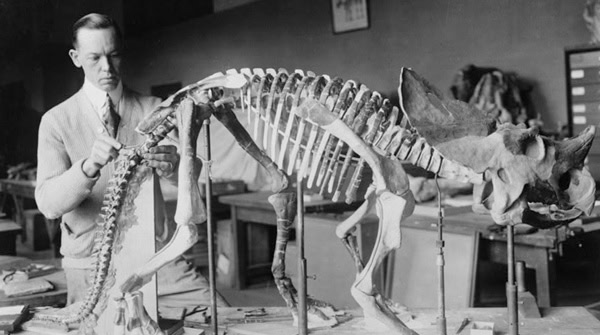
Norman Ross prepares the fossil of a young dinosaur, about seven or eight million years old, for exhibition in 1921. National Photo Company Collection/Library of Congress. Image cropped.
Among the ongoing revolutions in historical research is the flood of new information about the human past that comes not from written documents but from the natural sciences. What might this mean for the profession of history, our research and interpretations of the past, and our training and hiring practices? Which fields of history will be most, and least, affected? How can historians avoid the perils, without ignoring the promise, of using data from genetics, the paleosciences, and elsewhere?
The presidential address will take place on Saturday, January 4, 2020, from 5:30 p.m. to 6:30 p.m. in the New York Hilton’s Trianon Ballroom.
This work is licensed under a Creative Commons Attribution-NonCommercial-NoDerivatives 4.0 International License. Attribution must provide author name, article title, Perspectives on History, date of publication, and a link to this page. This license applies only to the article, not to text or images used here by permission.
